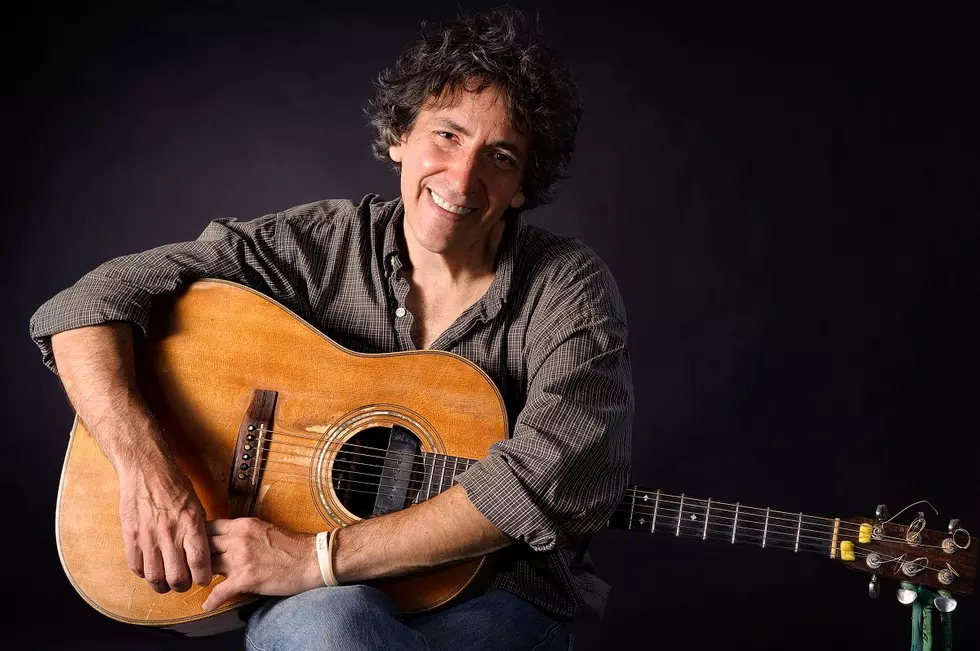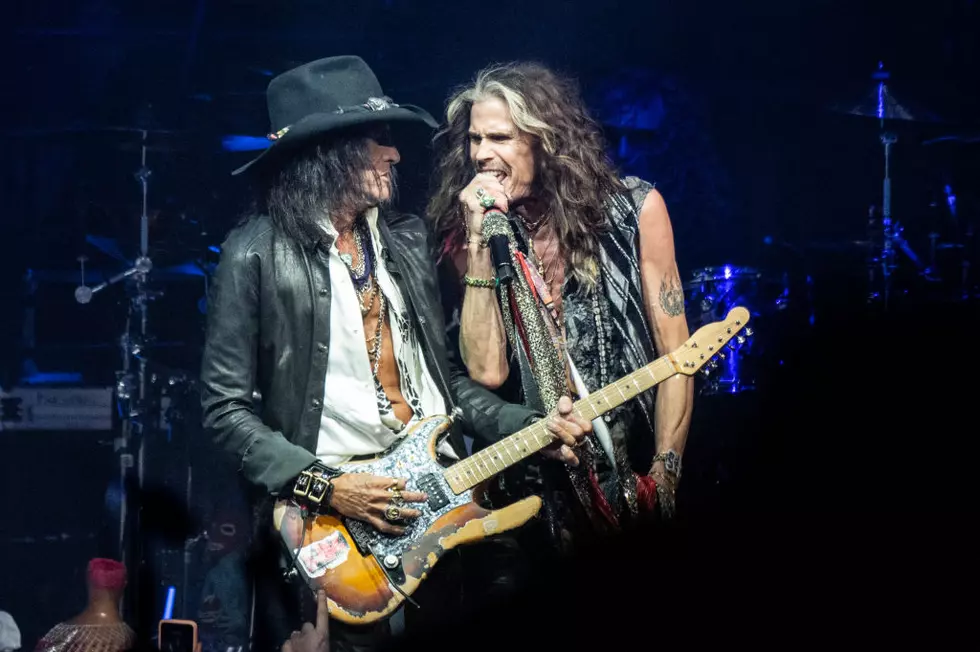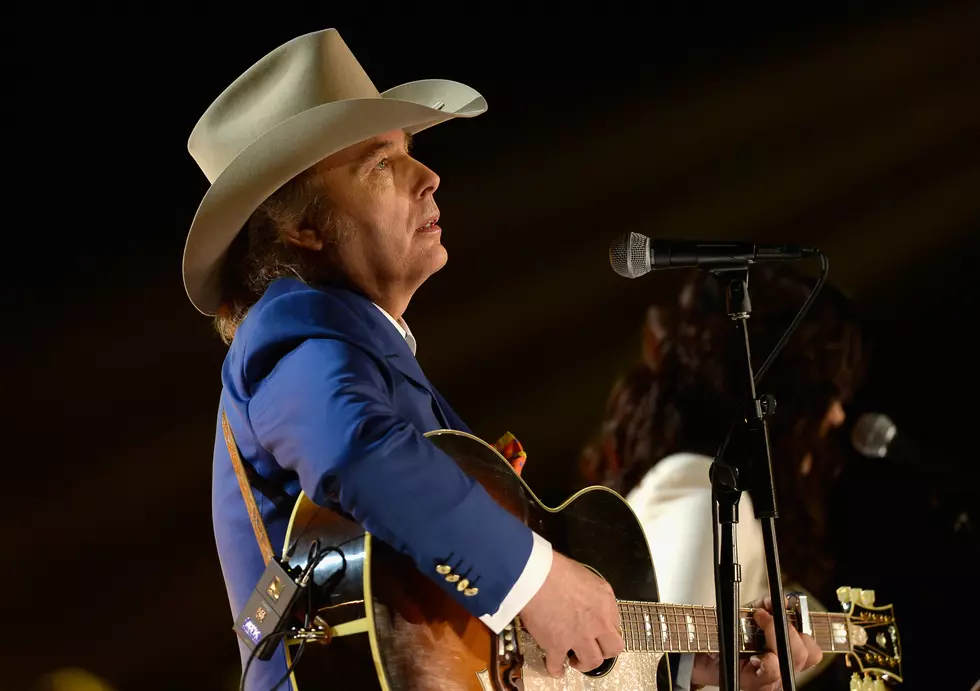
How Yes Branched Off Into Anderson Bruford Wakeman Howe
Yes enjoyed a massive comeback in the early '80s after adopting a more radio-friendly sound for their 90125 album, but the good times didn't last. Lineup changes have always been a matter of course for the group, and after one more record (1987's Big Generator) and a few more years, things got messy all over again.
When the dust settled after the Big Generator tour, lead singer Jon Anderson was out, following an argument with bassist Chris Squire over the band's next step -- and, more importantly, when it needed to be taken. According to Anderson, the problem stemmed largely from Squire's lack of motivation for new material.
"I like having Lead Singer's Disease," Anderson laughed. "I have to let the others know I'm listening. Yes were making me feel like a sideman and I’ll never be a sideman for anyone. Mind, I love Chris and I will work with him again but for years he's been late for everything. Rehearsals starting at two and he'd never be there till five. It was driving everyone crazy. So I rang him and he said, ‘This is divorce, then?’ And I said, 'It's got to be. Christ; you're just not handling your friends very well, are you?'"
In need of new collaborators, Anderson turned to some former Yes mates -- namely drummer Bill Bruford, keyboardist Rick Wakeman, and guitarist Steve Howe. Forced to abandon the Yes banner due to Squire's ownership of the trademark, but unwilling to try and soldier on under a new name, the reunited quartet decided to recruit session ace bassist Tony Levin and simply go as Anderson Bruford Wakeman Howe.
That the new group sounded like a law firm was not lost on fans, especially after the disagreements between Yes and ABWH erupted into legal proceedings held to determine who had the right to use the band name in connection with new music and live performances. Given that ABWH consisted of four former Yes members, including the band's distinctive-sounding lead singer, and used new artwork from frequent Yes collaborator Roger Dean on its album cover, it isn't hard to understand Squire's consternation, particularly at a time when Yes seemed to be stuck in an indefinite creative idle.
Squire, unsurprisingly, sounded a dismissive tone after the legal particulars were worked out. "Jon just went and did that after Big Generator because I guess he wasn’t getting along with the management. I’m not quite sure what happened exactly, but he went and did that. Jon's always done the odd thing," he shrugged. "I didn’t really mind at all. But I didn’t particularly enjoy the music they were making. Bill Bruford was playing electronic drums: It was a funny, odd thing, really. I think ABWH was a very unhappy alliance, from what I’ve heard. I haven’t pried too much into it, but I don’t think they were particularly happy."
Released June 20, 1989, Anderson Bruford Wakeman Howe offered a decidedly old-school rebuttal to the progressively more produced sound Yes used throughout the '80s, leaning heavily on the band's prog roots with a nine-song set that included four lengthy suites: "Themes," "Brother of Mine," and "Order of the Universe." With expanded running times aplenty, mystical artwork, and portentous-sounding song titles like "Birthright" and "The Meeting," it gave the appearance of vintage Yes – although the truth turned out to be somewhat different.
"Some upsetting things happened in the way we made it," Howe told Innerviews, "but I was really quite happy with the project. I remember thinking 'Wow, that’s pretty interesting.' Jon came to my house in London and said, 'Let’s do this. Let’s put this band together.' I gave him six songs on a cassette and he walked out the door. Those songs are basically what became the album. He added to those songs. So, I have a very soft spot for the album because some of the emotional pieces are fantastic. The songs do really mean a lot to me. They are quite exciting."
Listen to AWBH's 'Themes'
Exciting or not, Howe admitted that Anderson's control eventually left him somewhat out of the loop on the album. "There are a couple of things on it I’m not even part of," he continued. "Jon was ruling the roost on the project. That album was upsetting to me only at the mix stage. I kind of hit the roof at that point thinking, 'Oh dear, it got mixed like other albums had during the ‘80s.' To me, that meant the amazing ability to pull out the feel. I felt, 'Hey, we have a band playing here, and that should be reflected in the mix.' But it was cleaned up, digitized and endlessly transferred between different systems. Some of the record is very spiky and hard."
More problematic than the overall sound was the wholesale removal of performances that might have resonated with longtime Yes fans. "There were some very sad edits, particularly on that lovely ABWH song 'Take the Water to the Mountain' that ended up on Union," Howe lamented. "That song was phenomenal. Tony Levin and I played great stuff on it and it all got edited out. Those are the kinds of things that happened."
Bruford, for his part, was admirably upfront about his reasons for reuniting with his former bandmates. "You get paid tons there, much too much, and it's great," he admitted.
"Musicians ... often are going to be working in two spheres. To survive you're going to have to work in a couple of places, if you're not working in studio music, you're working in movie music or jingles and then jazz is what you do with that money and that's very much my case. There's no doubt that ABWH and Yes have turned into a financial bonanza for me, which is absolutely great. There's no musical future in it from my point of view, it's regressive music, it's historical stuff. But once in awhile I think a musician is allowed to go on vacation, and to make everyone very happy, playing all the stuff they all want them to play from 20 years ago."
That said, Bruford was also aware of the possibilities inherent in this combo, even if they ended up going unfulfilled. "The tour itself did extremely well. The album sold extremely well. Why 'Brother of Mine' wasn't a hit I've no idea at all," he grumbled. "The only possible explanation I have is that it was edited by [Arista boss] Clive Davis, who has the kiss of death when editing singles."
But it wasn't just having single edits imposed on longer tracks that derailed the group. "There was a brief window, I think ... there was a brief opportunity for that band to have flourished. I thought there were moments in the music ... that I thought showed intelligence and genuine scope, and a genuine future for the participants. If the participants had managed to close their ears to of all the nonsense being spoken in their ears, of course by [manager] Brian Lane and record companies, then they had a chance at a future. However, I think that window closed pretty much as quickly as it opened, I'm not sure everybody else noticed it."
Of course, bands don't just find themselves in situations where they're beholden to record company interests. "The problem with bands like Yes all the time has been over-consumption of resources, greed on the one hand and indolence on the other, particularly indolence, huge sums of money consumed for no reason whatsoever, completely thoughtlessly," Bruford argued. But as for the music on the record? "I'm pretty happy, I mean they're essentially Jon's songs. I had very little to do with them. I thought that Jon was on strong form for that album."
Anderson Bruford Wakeman Howe performed respectably on the charts and on the road, and a live album followed in 1993. But the project was cut short partway through sessions for its second album, which ultimately ended up forming the rough basis for a new Yes record that reunited Anderson's group with the Squire-led faction. That project, released in 1991 as Yes' Union LP, spelled the end for ABWH, something various members have since openly lamented. But for Anderson, it was all part of a mystical musical journey.
"Our music is what it is!" he exclaimed during the promotional cycle for the record. "It might not seem really cool for me to think of myself as an artist; some journalists might say, 'Who the fuck does he think he is?' Well, they can say what they like about us, make out we're aging money-grabbing psychedelic dinosauric pop-flasho-hippo ... rock 'n' roll can't accept anyone 'pontificating.' But I don't pontificate. I'm just on this beautiful search. It can't end, because there's the known, the unknown and the unknowable! That's life! Whoo!"
Yes Albums Ranked
More From 103.7 The Loon




![Foo Fighters’ Taylor Hawkins Drumming in 9th Grade [VIDEO]](http://townsquare.media/site/66/files/2015/08/Taylor-Hawkins-in-9th-Grade.png?w=980&q=75)




